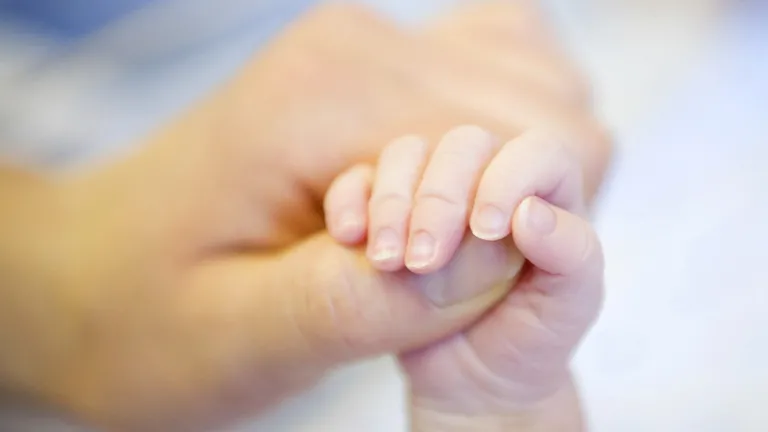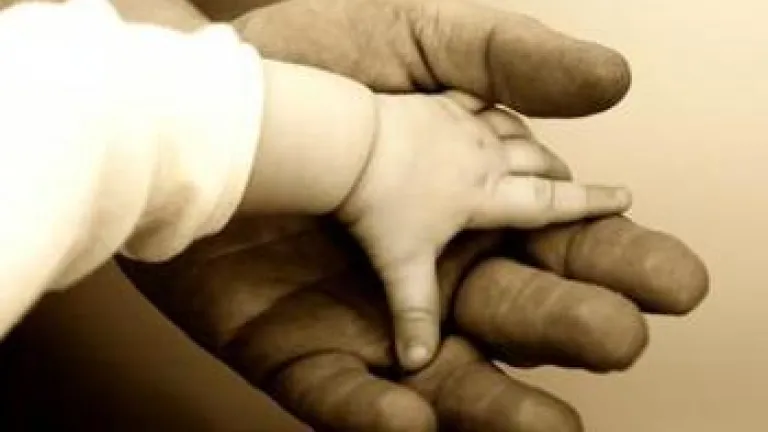A New Creation in Christ
When our minds and hearts are transformed by the Holy Spirit, we put on Christ. Paul describes this dramatic change in our hearts and minds as Jesus Christ living within us.
How does Paul describe those who, after baptism, are transformed by the Holy Spirit?
"... You have put off the old man with his deeds, and have put on the new man who is renewed in knowledge according to the image of Him who created him" (Colossians 3:9-10).
"For you are all sons of God through faith in Christ Jesus. For as many of you as were baptized into Christ have put on Christ" (Galatians 3:26-27).
"... God willed to make known what are the riches of the glory of this mystery among the Gentiles: which is Christ in you, the hope of glory" (Colossians 1:27).
"Therefore, if anyone is in Christ, he is a new creation; old things have passed away; behold, all things have become new" (2 Corinthians 5:17).
"I have been crucified with Christ; it is no longer I who live, but Christ lives in me; and the life which I now live in the flesh I live by faith in the Son of God, who loved me and gave Himself for me" (Galatians 2:20).
When our minds and hearts are transformed by the Holy Spirit, we "put on Christ." Paul describes this dramatic change in our hearts and minds as Jesus Christ living within us. We "put off the old man with his deeds" and "put on the new man." We are "renewed" in knowledge and in the spirit of our minds. As the children of God we become "in Christ" a truly new creation. God transforms us into His own family—His sons and daughters (2 Corinthians 6:18).
What responsibility does this place on those who are being transformed?
"You were taught to put away your former way of life, your old self, corrupt and deluded by its lusts, and to be renewed in the spirit of your minds, and to clothe yourselves with the new self, created according to the likeness of God in true righteousness and holiness" (Ephesians 4:22-24, NRSV).
"Therefore, as the elect of God, holy and beloved, put on tender mercies, kindness, humility, meekness, longsuffering; bearing with one another, and forgiving one another, if anyone has a complaint against another; even as Christ forgave you, so you also must do. But above all these things put on love, which is the bond of perfection" (Colossians 3:12-14).
God is able and determined to create in us His own divine nature (2 Peter 1:4). "For He made Him [Christ] who knew no sin to be sin for us, that we might become the righteousness of God in Him" (2 Corinthians 5:21).
The first two chapters of Genesis briefly tell how God created the physical universe and emphasize that He made the first man and woman. But now He works on a far more important creation—the creation of righteous character in His sons and daughters. That is why our genuine, heartfelt repentance is so important as He begins this process in us. We have to want, with all of our heart, for Him to make us into a new person.
Why is our participation so important?
The creation of righteous character is a two-way process. God gives us the knowledge and all the power we need. But we supply the choice to live righteously. Without our choice, freely made, we would be mere automatons—functioning like a sophisticated preprogrammed robot. That is not what God desires.
God wants us to be His own children who share His values. He wants us to use His values and convictions to make decisions as He would make them. Why? Because He wants us to "inherit all things"—to share His entire creation with Him. As He tells us in Revelation 21:7, "He who overcomes shall inherit all things, and I will be his God and he shall be My son."
Notice Paul's exuberance over the inheritance God has in store for us: "The Spirit [itself] bears witness with our spirit that we are children of God, and if children, then heirs; heirs of God and joint heirs with Christ, if indeed we suffer with Him, that we may also be glorified together. For I consider that the sufferings of this present time are not worthy to be compared with the glory which shall be revealed in us" (Romans 8:16-18).
Nothing is more important to God than our spiritual development. Our development is essential for us to receive the awesome inheritance God has in store for us as His children: "But one testified in a certain place, saying: 'What is man that You are mindful of him, or the son of man that You take care of him? You have made him a little lower than the angels; You have crowned him with glory and honor, and set him over the works of Your hands. You have put all things in subjection under his feet.' For in that He put all in subjection under him, He left nothing that is not put under him. But now we do not yet see all things put under him. But we see Jesus, who was made a little lower than the angels, for the suffering of death crowned with glory and honor ..." (Hebrews 2:6-9).
Was Jesus what God wants us to become like as human beings?
"And we know that all things work together for good to those who love God, to those who are the called according to His purpose. For whom He foreknew, He also predestined to be conformed to the image of His Son, that He might be the firstborn among many brethren" (Romans 8:28-29).
God predetermined, in His master plan, that His Son should be the model for our development. Or, as Paul explained, God "called us with a holy calling ... which was given to us in Christ Jesus before time began ..." (2 Timothy 1:9).
If we are "in Christ," we are being "conformed" to His "image"—just as "He is the image of the invisible God, the firstborn over all creation" (Colossians 1:15). Our spiritual growth should continue "until all of us come to the unity of the faith and of the knowledge of the Son of God, to maturity, to the measure of the full stature of Christ" (Ephesians 4:13, NRSV). Therefore, "as we have borne the image of the man of dust, we shall also bear the image of the heavenly Man" (1 Corinthians 15:49).
Can we ultimately be like the glorified Christ?
"Beloved, now we are children of God; and it has not yet been revealed what we shall be, but we know that when He is revealed, we shall be like Him ..." (1 John 3:2).
How should the knowledge of our incredible potential motivate us?
"And everyone who has this hope in Him purifies himself, just as He is pure" (1 John 3:3).
Knowing God's eternal plan for us should inspire us to purify our hearts and motives. "Blessed are the pure in heart, for they shall see God," said Jesus (Matthew 5:8), and James wrote, "But the wisdom that is from above is first pure, then peaceable, gentle, willing to yield, full of mercy and good fruits, without partiality and without hypocrisy" (James 3:17).
Whose heart and thoughts should we emulate?
"Let this mind be in you which was also in Christ Jesus" (Philippians 2:5).
Paul had just described key characteristics of Christ's mind, His attitude toward others. Paul first emphasized that "in Christ" our "fellowship of the Spirit" should motivate us to share the "same love" for one another. "Therefore if there is any consolation in Christ, if any comfort of love, if any fellowship of the Spirit, if any affection and mercy, fulfill my joy by being like-minded, having the same love, being of one accord, of one mind" (Philippians 2:1-2).
Then Paul explained the proper motivation for all our relationships. "Let nothing be done through selfish ambition or conceit, but in lowliness of mind let each esteem others better than himself. Let each of you look out not only for his own interests, but also for the interests of others" (Philippians 2:3-4). We need to think with the same love and humility that was in Jesus' mind.







